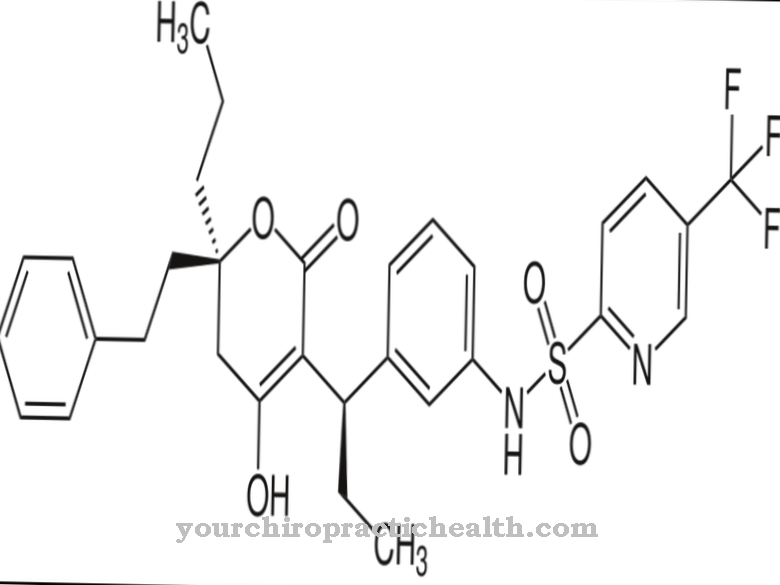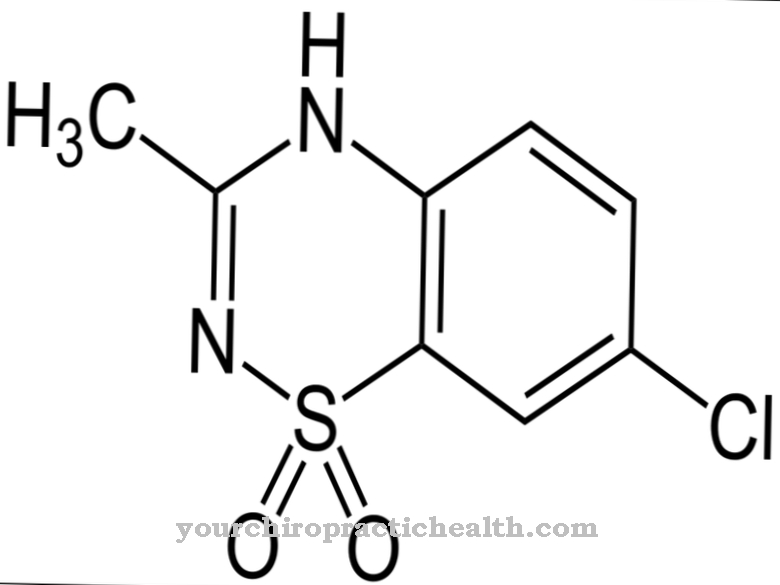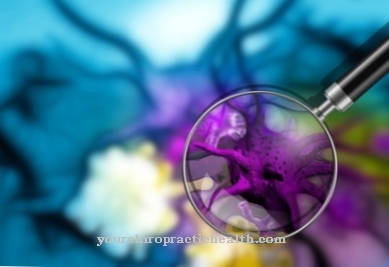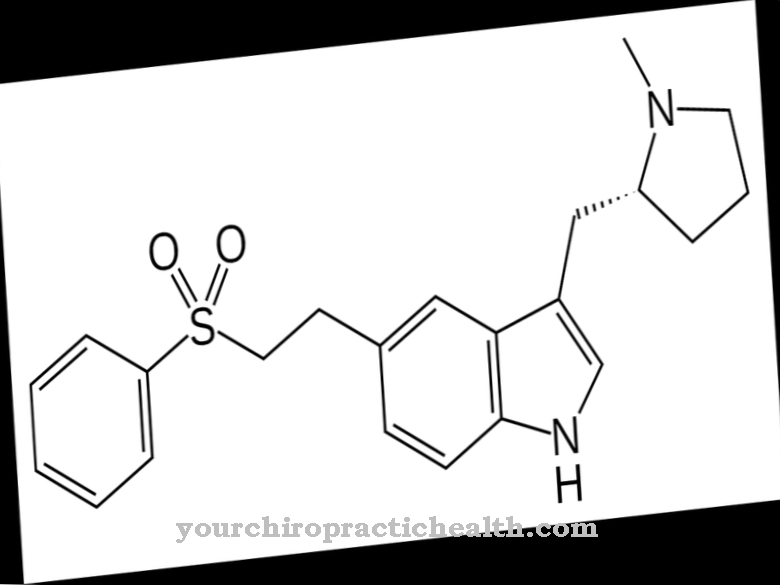Josamycin is an antibiotic that is effective against anaerobic gram-positive bacterial strains. In Austria it is mostly an alternative Josalid called. It is an alternative for those who are allergic to penicillin. However, the administration of josamycin can lead to hypersensitivity, cross-reactions or side effects in some patients.
What is Josamycin?
Josamycin is an antibiotic that belongs to the group of macrolides. It is obtained both naturally from strains of bacteria and also produced synthetically.
Josamycin is a 16-membered lactone ring that does not contain any amino sugars in the side chain.
Pharmacological effect on the body and organs
Josamycin works by binding to the ribosomes of pathogens, thereby blocking protein synthesis.
However, this does not apply to every pathogen. There are also pathogens that are resistant to josamycin. It is therefore important to clarify precisely against which bacterial strains causing the disease josamycin is to be given during administration to ensure that the administration can also achieve the corresponding effect.
Medical application & use for treatment & prevention
Josamycin is given by the oral route. It is very often given because patients are allergic to penicillin and a highly effective alternative to this antibiotic is needed.
Josamycin works very well with germs that are inside the cells and is in most cases, with a few exceptions, well tolerated.
The drug is helpful for many anaerobic bacterial strains, for a large number of gram-positive, but also gram-negative pathogens. Examples in which the application of josamycin has a good effect are gram-positive cocci, rod-shaped bacteria such as listeria or corynebacteria, only partially also with hemophilus and also with gram-negative pathogens such as mycoplasma, campylobacter, chlamydia, Bacteroides, Legionella, Bordatella and others other.
Josamycin is therefore used, among other things, for chlamydial and mycoplasma infections, even during pregnancy. Josamycin can also be used for urethritis that does not have a gonorrheic origin.
The drug is also helpful for many different infections, including but not limited to eye infections, upper respiratory tract infections, also lower respiratory tract infections, skin infections, and soft tissue infections.
It is important to mention that Josamycin works particularly well when the antibiotic is required to be highly tissue permeable. Josamycin is not effective against enterobacteria because these bacterial strains are resistant to the active ingredient.
Risks & side effects
In general, Josamycin is one of the drugs that are very well tolerated and where risks and side effects are rare. However, it can also happen with this drug that it is not tolerated. Josamycin is therefore contraindicated for all hypersensitivity reactions, cross-reactions with other macrolide antibiotics, while the mother is breastfeeding or in babies under two months of age.
If you have liver damage, it is very likely that josamycin will not be well tolerated either and should clarify this very carefully with your doctor. The administration of josamycin is also contraindicated in severe renal insufficiency.
Side effects can manifest themselves in allergic skin reactions, asthma or pruritus. Statistically speaking, this is the case in 0.4% of all applications. Mild gastrointestinal disturbances occur in up to 12% of the use cases. Therapy can also be discontinued if the side effects become too severe.
Diarrhea, loss of appetite, vomiting or nausea lead to therapy discontinuation in 2% of all cases. In 1% of therapy discontinuations, it is due to neurological disorders such as headaches and dizziness. In very rare cases, it may be necessary to discontinue therapy because cholestatic jaundice has occurred.
The drug is also very rarely tolerated because of colitis, tongue coatings, stomatitis or irritation of the mucous membranes. Interactions with other drugs occur occasionally, for example when these drugs also put a strain on the liver metabolism.













.jpg)

.jpg)
.jpg)











.jpg)